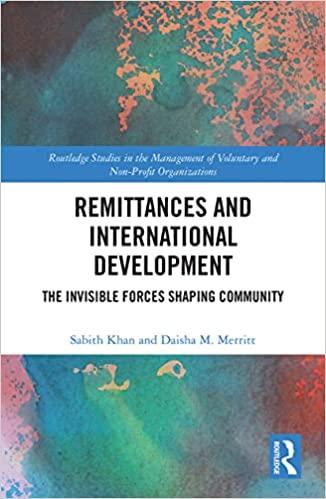Question
1 . Describe the 8 types of capital budgeting projects. 2 . Provide one reason for foregoing value-added projects under capital rationing. 3 . What
1. Describe the 8 types of capital budgeting projects.
2. Provide one reason for foregoing value-added projects under capital rationing.
3. What is the cash flow effect on asset purchases and depreciation ?
4. What are sunk costs ?
5. Describe negative within-firm externalities as they pertain to cash flow versus accounting income.
6. A project has an initial cost of $ 42,000, expected net cash inflows of $ 9,000 per year for 7 years, and a cost of capital of 12%. What is the projects NPV ?
7. X Co. is considering replacing two pieces of equipment, a truck and an overhead pulley system, in this years capital budget. The projects are independent. The cash outlay for the truck is $ 15,200 and that for the pulley system is $ 20,000. The firms cost of capital is 14%. After-tax cash flows, including depreciation are as follows:
Year Truck Pulley
1 $ 5,300 $ 7,500
2 5,300 7,500
3 5,300 7,500
4 5,300 7,500
5 5,300 7,500
Calculate the IRR, NPV and the MIRR for each project, and indicate the accept-reject decision in each case.
8. Project R has a cost of $ 10,000 and in expected to produce cash flows per year of $ 4,000 for 3 years. Project S has a cost of $20,000 and in expected to produce cash flows of $ 7,000 per year for 4 years. Calculate the 2 projects NPVs, IRRs, MIRRs, and PIs, assuming a cost of capital of 11%. Which project should be selected ?
9. An analyst has modeled the stock of a company using the Fama-French three-factor model. The risk-free rate is 5%, the market return is 9%, the return on the SMB portfolio is 3.2%, and the return on the HML portfolio is 4.8%. If a = 0, b = 1.1, c = -0.3, and d=1.2, what is the stocks predicted return ?
10. A stocks return has the following distribution:
Demand for Products Probability of Occurrence of Demand Return if
Demand Occurs
Weak 0.1 -40%
Below Average 0.2 -5
Average 0.4 12
Above Average 0.2 21
Strong 0.1 50
Calculate the stocks expected return and standard deviation.
Step by Step Solution
There are 3 Steps involved in it
Step: 1

Get Instant Access to Expert-Tailored Solutions
See step-by-step solutions with expert insights and AI powered tools for academic success
Step: 2

Step: 3

Ace Your Homework with AI
Get the answers you need in no time with our AI-driven, step-by-step assistance
Get Started


